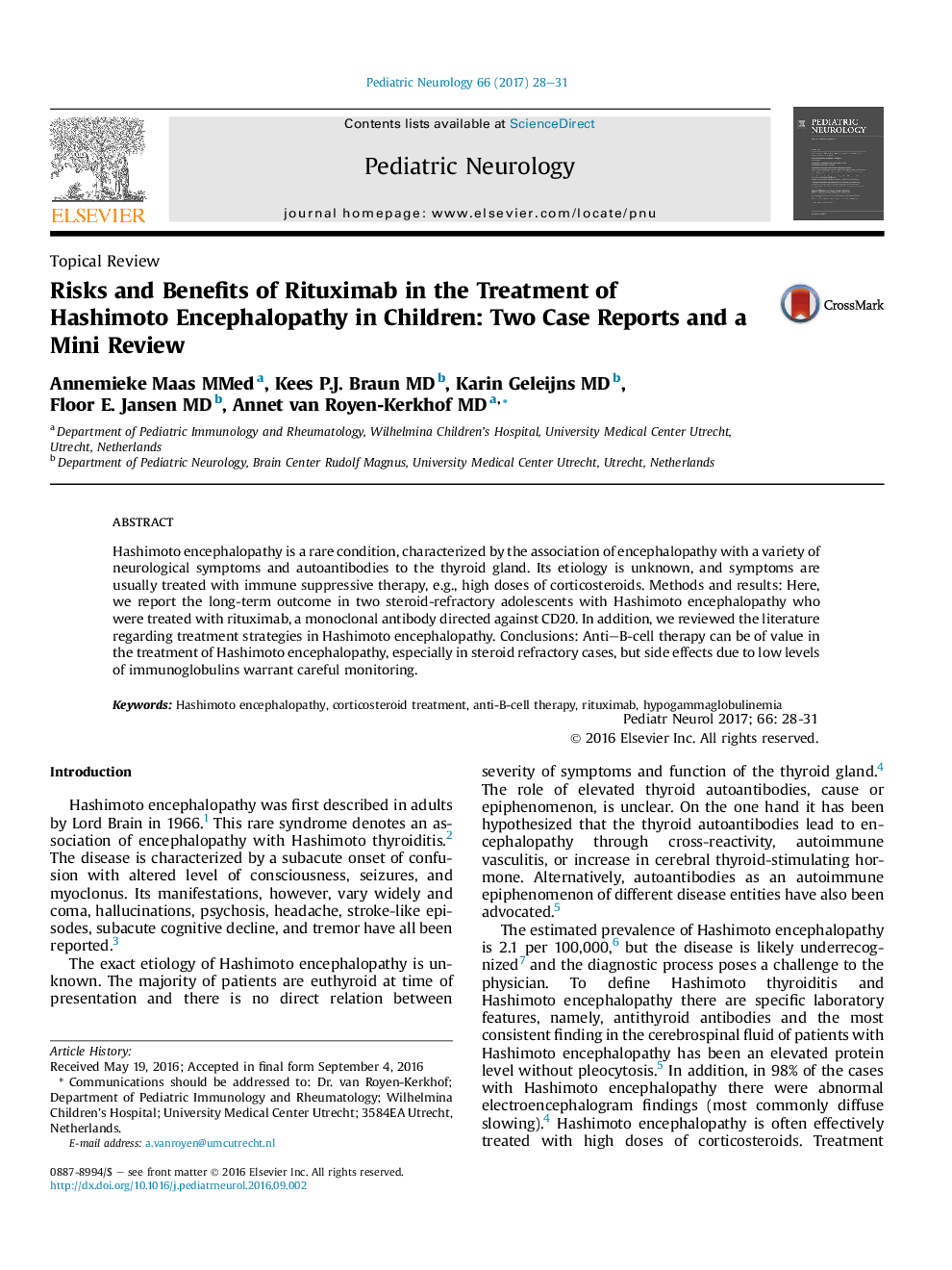| Article ID | Journal | Published Year | Pages | File Type |
|---|---|---|---|---|
| 5633040 | Pediatric Neurology | 2017 | 4 Pages |
Hashimoto encephalopathy is a rare condition, characterized by the association of encephalopathy with a variety of neurological symptoms and autoantibodies to the thyroid gland. Its etiology is unknown, and symptoms are usually treated with immune suppressive therapy, e.g., high doses of corticosteroids. Methods and results: Here, we report the long-term outcome in two steroid-refractory adolescents with Hashimoto encephalopathy who were treated with rituximab, a monoclonal antibody directed against CD20. In addition, we reviewed the literature regarding treatment strategies in Hashimoto encephalopathy. Conclusions: Anti-B-cell therapy can be of value in the treatment of Hashimoto encephalopathy, especially in steroid refractory cases, but side effects due to low levels of immunoglobulins warrant careful monitoring.
